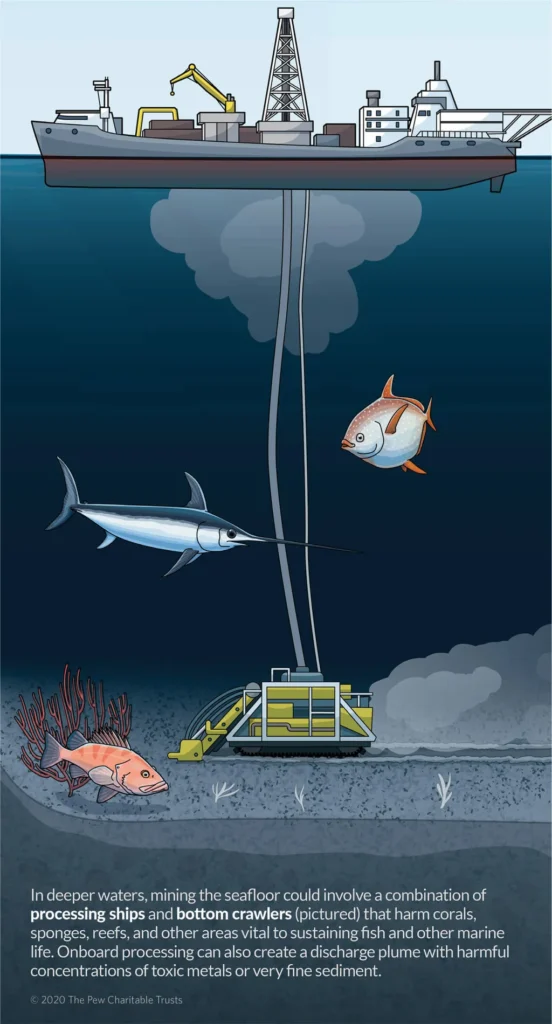The mining industry’s reach is extending into the deep ocean, but new research casts a shadow over the environmental impact of this emerging frontier. A study published in *Nature Communications* has revealed that sediment waste from deep-sea mining could disrupt or even kill the microscopic organisms that underpin the marine food web. This is the first comprehensive examination of the wastewater discharges associated with seabed mining, a process that uses vacuum-like submersible vessels to collect mineral-rich nodules from the ocean floor.
The nodules, which contain valuable metals like manganese, nickel, and cobalt, are separated from water and sediment on the surface vessel. The sediment is then returned to the ocean at depths ranging from 1,000 to 3,000 meters. However, the study’s findings challenge the assumption that this discharge is benign. Researchers sampled ocean water from discharge plumes during trials of seabed mining technology in 2022 and found that the sediment created large clouds in a layer of the ocean known to be rich in zooplankton.
Zooplankton, tiny organisms that form the base of the marine food chain, are crucial for the health of ocean ecosystems. “The discharge created large sediment clouds in a strata of the ocean known to be rich in zooplankton,” the study notes. This disruption could have cascading effects throughout the marine food web, potentially impacting fish populations and the broader ocean ecosystem.
The study’s findings come at a critical time for the deep-sea mining industry, which is poised for significant growth as demand for minerals used in batteries and other technologies increases. The International Seabed Authority (ISA), the United Nations body responsible for regulating mining in international waters, is currently developing environmental regulations for the industry. However, the study’s authors argue that more research is needed to fully understand the impacts of deep-sea mining and to develop effective regulations.
“The potential impacts of deep-sea mining on marine ecosystems are not yet fully understood, and more research is needed to ensure that any mining activities are conducted in an environmentally responsible manner,” said one of the study’s authors. This sentiment is echoed by environmental groups, which have long raised concerns about the potential impacts of deep-sea mining on marine ecosystems.
The study’s findings also raise questions about the sustainability of deep-sea mining as a source of minerals. While the industry argues that deep-sea mining is necessary to meet the growing demand for minerals, critics point out that the environmental costs may be too high. “We need to consider the long-term impacts of deep-sea mining on marine ecosystems and whether the benefits outweigh the risks,” said another expert not involved in the study.
As the deep-sea mining industry continues to develop, it will be crucial for stakeholders to engage in open and transparent dialogue about the environmental impacts of this emerging frontier. The study published in *Nature Communications* serves as a stark reminder that the ocean is a complex and interconnected ecosystem, and any mining activities must be conducted with caution and care. The findings could shape the development of the sector, pushing for more stringent regulations and a greater emphasis on environmental responsibility. The industry must now grapple with these findings and consider how to mitigate the potential impacts of deep-sea mining on marine ecosystems.

